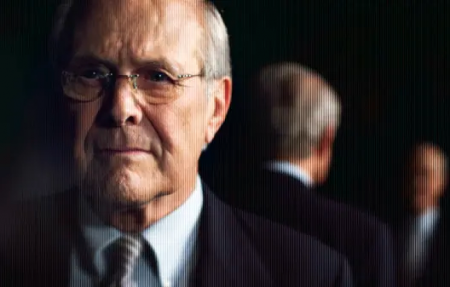Unknowns
There are six types of known.
|
The JC’S favourite Big Ideas™

|
The Rumsfeld three:
- Known knowns: Things you do know you know;
- Known unknowns: Things you do know you don’t know;
- Unknown unknowns: Things you don’t know you don’t know;
And the Jolly Contrarian three:
- Unknown knowns: Things you don’t know you do know.
- Not officially known: Things you know but the general public can’t prove.
- Knowable unknowns: Things you don’t know, but think you do know, for the time being, because computers.
Say what you like about the neocons, but this, from Donald Rumsfeld was a modern classic:
- Reports that say that something hasn't happened are always interesting to me, because as we know, there are known knowns; there are things we know we know. We also know there are known unknowns; that is to say we know there are some things we do not know. But there are also unknown unknowns—the ones we don't know we don't know. And if one looks throughout the history of our country and other free countries, it is the latter category that tend to be the difficult ones.
Rumsfeld’s knowns and unknowns
- Known known: the easy stuff; the stuff of service catalogs and risk taxonomies;
- Known unknown: the stuff you know about but can’t control.
- Unknown unknown: the black swans. This is where the risk is most acute, precisely because your risk taxonomy, with 20:20 hindsight, is guaranteed to miss these altogether.
The JC’s further categories of known
“Those who cannot remember the past are condemned to repeat it.”
Not included in Rumsfeld’s taxonomy (perhaps because it doesn’t make much sense at first) are these JC coinages:
The unknown known. Now, before you write this off, well — see theFinancial Services Modernization Act of 1999 for the sorts of things a well-ordered market can forget over sixty-odd years. The JC — who likes a pet theory, as readers will know — feels that unknown knowns might be the riskiest bucket of the lot.
The “suspected known”: The embarrassed press officer’s best friend, the “unsubstantiated allegation”. This is one that the press officer knows to be true but believes nobody else can prove, and which everyone else knows perfectly well to be true, but knows they can’t prove.